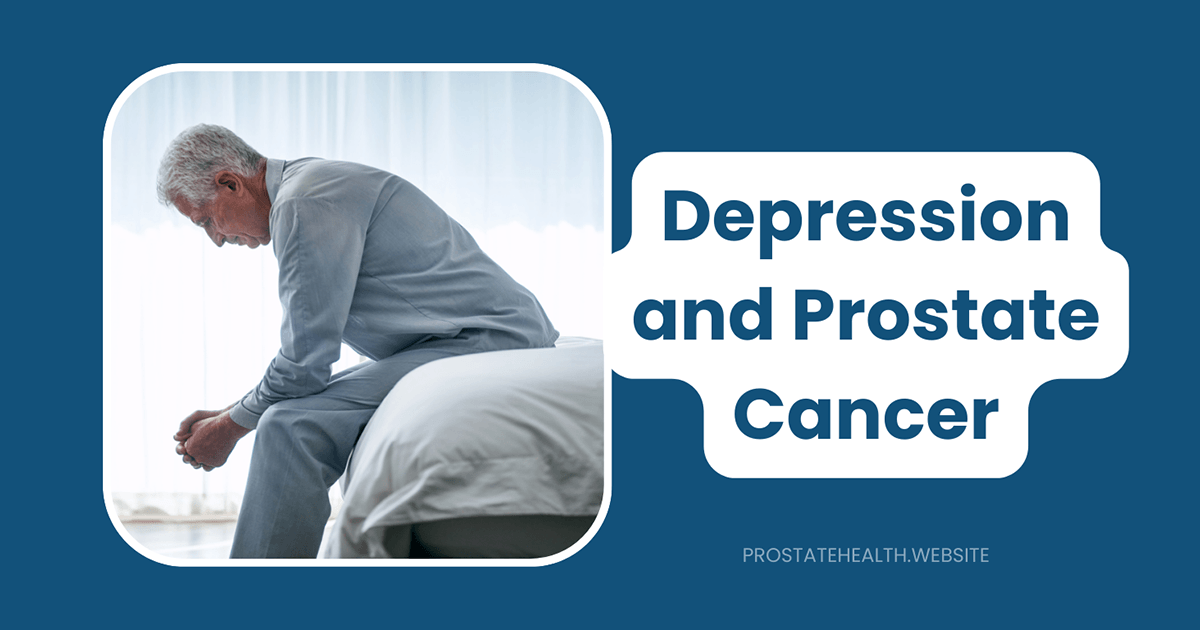Intimacy Without Intercourse: Maintaining Connection During Prostate Cancer Recovery

When John underwent radical prostatectomy last year, he and his wife Maria weren’t prepared for how profoundly their intimate life would change. “The doctors warned us about erectile dysfunction,” Maria shared, “but nobody really talked about how to stay connected during recovery.”
Their story isn’t unique. Up to 85% of men who undergo radical prostatectomy report at least temporary erectile dysfunction. For many couples, this creates not just a physical gap but an emotional one as well.
But here’s the truth that John and Maria eventually discovered: intimacy extends far beyond intercourse. Their journey—like many others—reveals how couples can maintain and even deepen their connection during prostate cancer recovery.
Redefining Intimacy After Prostate Surgery
The first step in maintaining connection is expanding your definition of intimacy. As Dr. Anne Katz, a Certified Sexuality Counselor, explains: “Intimacy encompasses emotional closeness, vulnerability, and physical affection—not just sexual intercourse.”
Consider these dimensions of intimacy that remain fully accessible during recovery:
- Emotional intimacy: Sharing feelings, fears, and hopes
- Intellectual intimacy: Engaging in meaningful conversations
- Experiential intimacy: Creating new memories together
- Physical intimacy: Touching, holding, and non-genital sensual contact
Many couples report that exploring these different dimensions actually strengthens their relationship. “We talk more deeply now,” says Robert, a 62-year-old prostate cancer survivor. “I feel closer to my wife than I did before surgery.”
Practical Approaches to Physical Connection
While intercourse may be temporarily or permanently altered, physical pleasure and connection remain possible. Here are evidence-based approaches that have helped many couples:
1. Sensual Exploration Without Pressure
The Movember Foundation recommends “sensate focus” exercises—a series of touching activities without the expectation of sexual performance. These exercises help couples:
- Rediscover pleasurable sensations throughout the body
- Reduce anxiety about sexual performance
- Build comfort with physical touch again
Try this: Set aside 20 minutes where one partner touches the other’s body, avoiding genital areas initially. Focus entirely on sensation without any goal beyond pleasure.
2. Adapting to Physical Changes
After prostate surgery, men can still experience orgasm even without an erection. According to Harvard Health, “Orgasms after radical prostatectomy may feel qualitatively different but can still be pleasurable and satisfying.”
Some approaches that couples have found helpful include:
- Manual stimulation with plenty of lubricant
- Vibration therapy on the head of the penis, which can help stimulate nerves
- Exploring the prostate bed area, which may still produce pleasurable sensations
“It took some experimentation,” shares Michael, who underwent prostate surgery three years ago. “But we discovered that I could still experience intense pleasure, just in different ways.”
3. Assistive Devices and Therapies
For couples interested in maintaining erection-based intimacy, several options exist:
- Vacuum constriction devices (penis pumps) help draw blood to the penis
- Medication options like sildenafil (Viagra®), tadalafil (Cialis®)
- Pelvic floor physical therapy can improve erectile function and address incontinence
Remember that these approaches work best when couples approach them with curiosity rather than pressure.
Communication: The Foundation of Intimacy
Perhaps the most crucial element in maintaining connection is honest, compassionate communication. Research from the Sexual Medicine Society of North America found that many partners feel overlooked in discussions about intimacy after prostate surgery.
Consider these communication strategies:
Create a Regular Check-In Ritual
Set aside time weekly to discuss:
- What forms of touch feel good right now
- Emotional needs that might not be getting met
- New approaches you’d like to try
Use “I Feel” Statements
Instead of “You never touch me anymore,” try “I miss feeling your touch and would love to find new ways to connect physically.”
Consider Professional Support
A certified sex therapist or counselor who specializes in cancer recovery can provide invaluable guidance. Many couples report breakthroughs after just a few sessions of professional support.
Beyond the Bedroom: Building Intimacy in Daily Life
Intimacy isn’t confined to the bedroom. Many couples find that focusing on connection throughout daily life strengthens their bond during recovery:
- Schedule date nights that focus on fun and connection rather than sex
- Practice mindful touching throughout the day—hand holding, shoulder rubs, gentle caresses
- Express appreciation daily for specific qualities you value in your partner
- Create new rituals like morning coffee conversations or evening walks
“We started dancing in our living room,” shares Elena, whose husband underwent prostate surgery. “Just holding each other close to music became this beautiful way to feel connected.”
Partners’ Perspective: Taking Care of Your Needs Too
Partners of prostate cancer patients often put their own needs aside. However, maintaining your own well-being is crucial for the relationship.
Consider these self-care approaches:
- Join a support group for partners to share experiences
- Maintain your own pleasure practices, whether solo or with your partner’s involvement
- Communicate your needs clearly rather than suppressing them
- Remember that your feelings are valid, including frustration, loss, or grief
“I felt selfish focusing on my needs,” admits Thomas, whose partner underwent prostate surgery. “But when I started expressing them, it actually brought us closer. He wanted to know what I was feeling.”
The Road Forward: Patience and Perspective
Recovery timelines vary significantly. Nerve healing after prostate surgery can take up to two years, and some changes may be permanent. Throughout this journey, maintaining perspective helps:
- Focus on progress, not perfection
- Celebrate small victories in reconnection
- Remember that intimacy evolves throughout life, regardless of health challenges
- View this as an opportunity to discover new dimensions of your relationship
As John and Maria discovered a year after surgery: “Our intimate life is different now, but in some ways, it’s better. We’re more present with each other, more creative, and more appreciative of the connection we have.”
Resources for Further Support
- American Cancer Society’s Guide to Sexuality After Prostate Cancer
- ZERO – The End of Prostate Cancer offers support groups and resources
- Us TOO International provides peer-to-peer support






